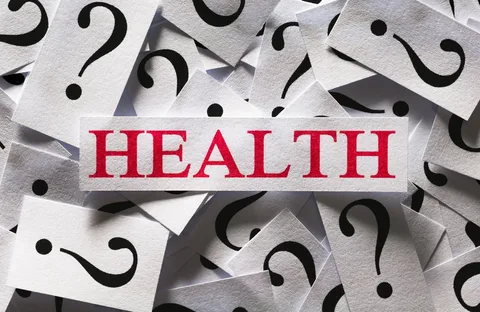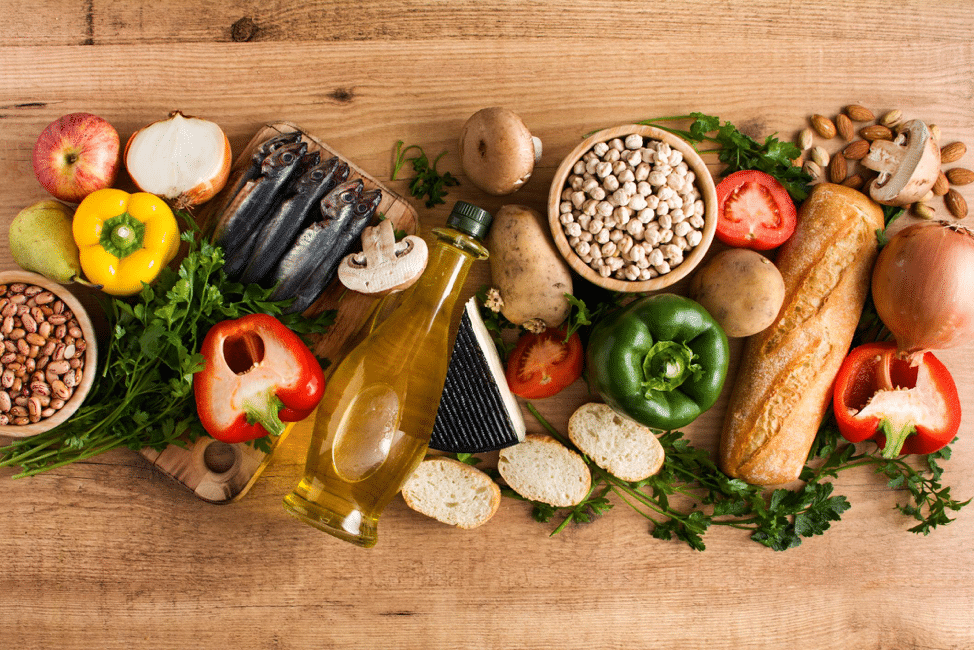1. Introduction
Prevalence of Health Myths
Health myths often circulate widely, influencing behaviors and beliefs about well-being. These myths, if left unaddressed, can contribute to misinformation and impact lifestyle choices.
Importance of Myth Debunking
Debunking common health myths is crucial for promoting accurate information and empowering individuals to make informed decisions about their health. This article aims to dispel prevalent health myths, providing clarity based on scientific evidence.
2. Myth: Drinking Eight Glasses of Water a Day
Debunking the Water Consumption Myth
Contrary to the popular belief that everyone needs to drink eight glasses of water a day, hydration needs vary among individuals. Factors such as age, activity level, and climate influence the amount of water each person requires.
Individual Hydration Needs
The “eight glasses a day” recommendation lacks a scientific basis. Individuals should focus on staying hydrated by listening to their bodies and adjusting water intake based on factors like thirst, physical activity, and climate.
Read more on:
| medreviewhub.com |
| readesh.com |
3. Myth: Cracking Knuckles Causes Arthritis
Addressing the Knuckle-Cracking Myth
Despite common beliefs, cracking knuckles does not lead to arthritis. Multiple studies have found no conclusive evidence linking knuckle cracking to arthritis. The sound is caused by the release of gas bubbles in the synovial fluid.
Lack of Scientific Evidence
Scientifically, there is no established connection between knuckle cracking and arthritis. Individuals can crack their knuckles without concern for joint damage or long-term health issues.
4. Myth: Eating Carbs at Night Leads to Weight Gain
Challenging the Carb Consumption Timing Myth
The idea that eating carbohydrates at night leads to weight gain is a misconception. Weight management is influenced by overall caloric intake and expenditure rather than the timing of carbohydrate consumption.
Focus on Overall Nutrient Intake
A balanced diet that includes carbohydrates, proteins, and fats is essential for overall health. The focus should be on the quality and quantity of nutrients consumed throughout the day, rather than specific timing.
5. Myth: The More You Sweat, the More Fat You Burn
Clarifying the Sweating and Fat Burning Myth
Sweating is the body’s way of regulating temperature, and it doesn’t directly correlate with fat burning. Intense sweating may lead to water loss, not fat loss.
Understanding the Body’s Thermoregulation
Fat burning is influenced by factors like exercise intensity, duration, and individual metabolism. Sweating is a natural cooling mechanism and doesn’t necessarily indicate increased fat burning.
6. Myth: Skipping Breakfast Slows Metabolism
Dismissing the Breakfast and Metabolism Myth
The belief that skipping breakfast slows metabolism is not universally supported by scientific evidence. Metabolism is a complex process influenced by various factors, and individual responses to meal timing vary.
Importance of Balanced Nutrition Throughout the Day
Rather than focusing solely on breakfast, individuals should prioritize balanced nutrition throughout the day. Eating regular, nutrient-dense meals supports overall energy levels and well-being.
7. Myth: Going Outside with Wet Hair Causes Illness
Dispelling the Wet Hair and Illness Myth
Contrary to the myth that going outside with wet hair causes illness, viruses and bacteria are the primary causes of infections. Being wet or cold doesn’t directly lead to getting sick.
The Role of Viruses and Bacteria in Getting Sick
Illness transmission occurs through exposure to pathogens. Staying warm and dry doesn’t prevent illness; good hygiene practices and avoiding contact with sick individuals are more effective measures.
8. Myth: Muscle Turns to Fat When You Stop Exercising
Debunking the Muscle to Fat Transformation Myth
Muscle and fat are distinct tissues with different functions. When individuals stop exercising, muscle may atrophy, but it doesn’t transform into fat. Fat gain is a result of changes in diet and activity levels.
Distinct Tissues: Muscle and Fat
Understanding that muscle and fat are separate tissues helps dispel the misconception that one can transform into the other. Maintaining muscle mass through regular exercise is essential for overall health.
9. Myth: You Can “Sweat Out” Toxins
Addressing the Detoxification through Sweat Myth
While sweating is a natural bodily process, it doesn’t serve as a primary means of detoxification. The liver and kidneys play crucial roles in eliminating toxins, and sweating has a minimal impact on this process.
Body’s Natural Detoxification Processes
The body’s natural detoxification processes involve organs like the liver and kidneys. Engaging in healthy lifestyle practices, such as proper nutrition and hydration, supports these processes more effectively than relying on sweating alone.
10. Myth: Organic Foods Are Always Healthier
Challenging the Organic Foods Superiority Myth
While organic foods can be part of a healthy diet, the notion that they are always superior to conventionally grown foods is a myth. The nutritional content of food is influenced by various factors, and both organic and conventional options can be nutritious.
Consideration of Overall Nutrition and Pesticide Levels
Choosing a variety of nutrient-dense foods is more important than focusing solely on organic options. Additionally, both organic and conventional foods undergo rigorous safety standards to ensure they meet health and safety criteria.
11. Myth: Crunches Are the Best Way to Get Abs
Clarifying the Crunches and Abdominal Definition Myth
While crunches can strengthen abdominal muscles, they alone are not the most effective way to achieve defined abs. A comprehensive approach that includes a combination of exercises and a healthy diet is essential for visible abdominal muscles.
Importance of Comprehensive Core Workouts
A variety of exercises targeting different core muscles, combined with overall body strength training and cardiovascular exercise, contributes to achieving and maintaining defined abs.
12. Myth: More Protein Equals More Muscle
Dismissing the Protein Intake and Muscle Gain Myth
While protein is crucial for muscle repair and growth, excessive protein intake doesn’t equate to more muscle. The body has limits on the amount of protein it can use for muscle synthesis, and excess protein is metabolized or stored.
Optimal Protein Consumption for Muscle Building
Meeting recommended protein intake levels based on individual needs and fitness goals is essential. Balanced nutrition that includes adequate protein, along with carbohydrates and fats, supports overall muscle health.
13. Myth: Sugar Causes Hyperactivity in Children
Debunking the Sugar and Hyperactivity Myth
Scientific studies have consistently found no conclusive evidence linking sugar consumption to hyperactivity in children. The belief that sugar causes hyperactivity is a persistent myth without solid scientific support.
Lack of Scientific Evidence Supporting the Claim
Behavioral changes in children attributed to sugar consumption are likely influenced by various factors, including expectations and individual sensitivity. The myth of sugar-induced hyperactivity lacks empirical backing.
14. Myth: All Fats Are Unhealthy
Challenging the All Fats Are Unhealthy Myth
Not all fats are unhealthy; in fact, some fats are essential for overall health. Distinguishing between healthy fats (unsaturated fats) and unhealthy fats (saturated and trans fats) is crucial for making nutritious dietary choices.
Differentiating Between Healthy and Unhealthy Fats
Healthy fats, found in sources like avocados, nuts, and olive oil, provide essential nutrients and support bodily functions. Unhealthy fats, often found in processed and fried foods, can contribute to health issues when consumed in excess.
15. Conclusion
Critical Thinking in Health Information
Critical thinking is essential when evaluating health information. Questioning common myths and seeking evidence-based knowledge empowers individuals to make informed choices for their well-being.
Seeking Evidence-Based Information
In conclusion, debunking common health myths requires a commitment to seeking evidence-based information. By cultivating a habit of critical thinking and staying informed, individuals can navigate the complex landscape of health advice with confidence.
FAQs
- Is drinking eight glasses of water a day necessary for everyone?
- No, hydration needs vary among individuals, and the “eight glasses a day” recommendation lacks scientific evidence. Individuals should listen to their bodies and adjust water intake based on factors like thirst and activity level.
- Does cracking knuckles lead to arthritis?
- No, scientific studies have found no conclusive evidence linking knuckle cracking to arthritis. The sound is caused by the release of gas bubbles and does not contribute to joint damage.
- Is eating carbs at night linked to weight gain?
- No, the timing of carbohydrate consumption does not directly lead to weight gain. Weight management is influenced by overall caloric intake and expenditure, not specific meal timing.
- Does sweating more equate to burning more fat?
- No, sweating is the body’s way of regulating temperature and does not directly correlate with fat burning. Fat burning is influenced by factors such as exercise intensity, duration, and individual metabolism.
- Does skipping breakfast slow down metabolism?
- The relationship between skipping breakfast and metabolism is complex and not universally supported by scientific evidence. Metabolism is influenced by various factors, and individual responses to meal timing vary.




